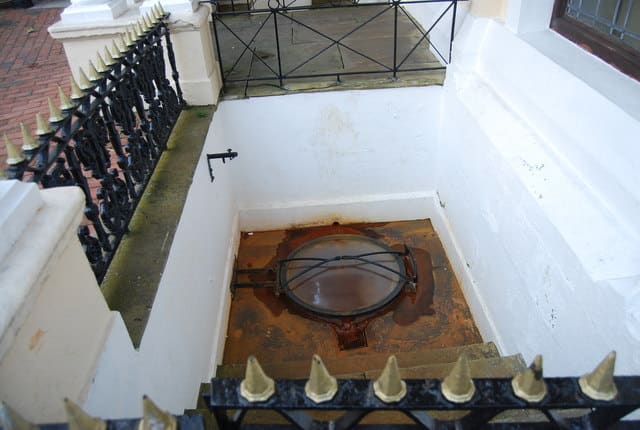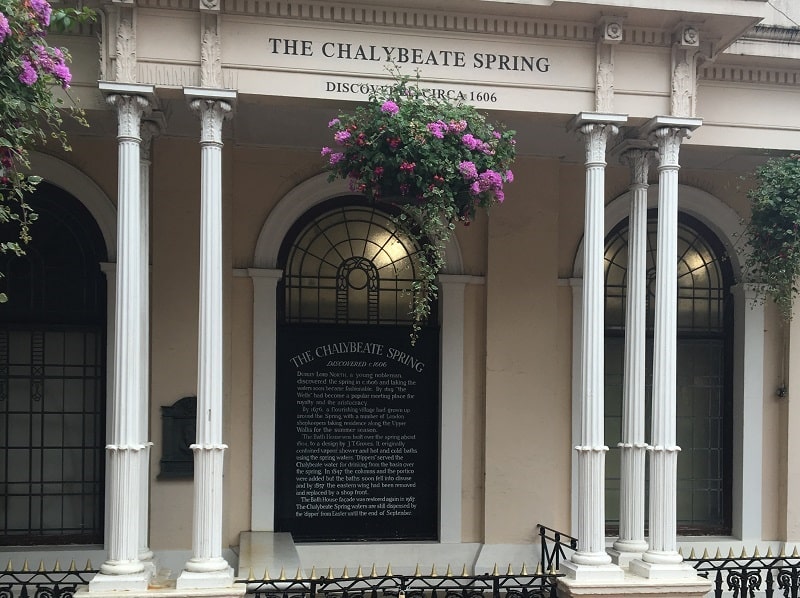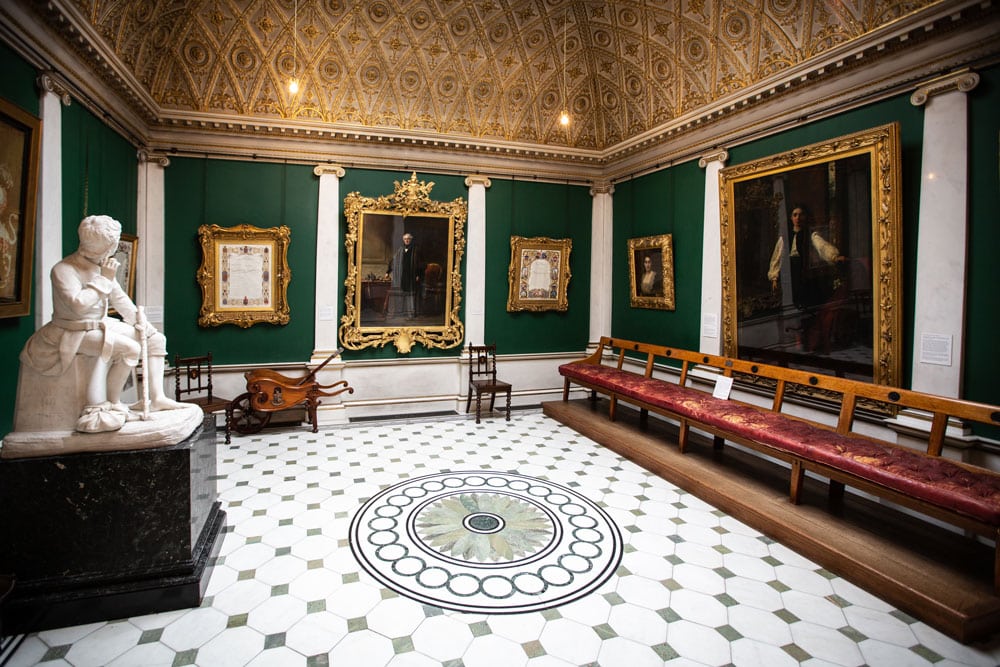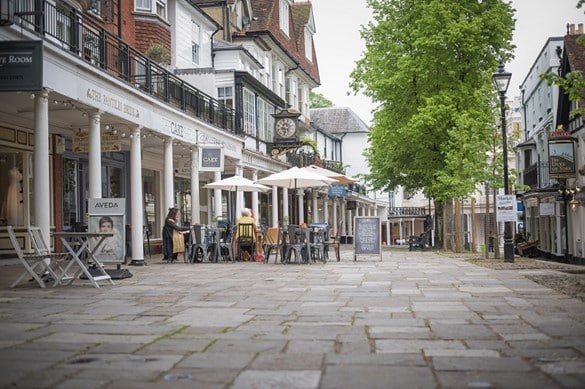If you have an interest in history, be sure to add Chalybeate Spring in Tunbridge Wells to your must-visit list.
Whether you’re staying at Salomons Estate for a wedding celebration or just dropping by for Sunday lunch, the spring offers a great way to spend an afternoon. It’s conveniently located just a 10-minute drive from our beautiful venue!
We’ve gathered some quick facts to impress your friends before your first visit. It’s one of the fantastic places to explore while you’re in town. Check out our website for more ideas and information on key events happening at our Tunbridge Wells hotel throughout 2023.
A spot of history
Did you know that the foundation of Tunbridge Wells can be attributed to a hangover? In 1606, the young nobleman Dudley North, 3rd Baron North, was heading back to London after a night of revelry with friends at the Abergavenny Estate in nearby Eridge.
Thirsty and not exactly sensible, he decided to drink deeply from some orangey-brown water bubbling up from the ground. To everyone’s surprise, he declared the waters a cure for hangovers, obesity, and ‘the over-moist brain,’ enthusiastically recommending them to his fellow London noblemen.
However, in those days, there was no comfortable Tunbridge Wells hotel for visitors to stay at. So, with public interest piqued, Lord Abergavenny cleared the area and laid the first stones for what would later become Tunbridge Wells.
By 1630, when Queen Henrietta Maria, wife of the ill-fated King Charles I, visited the town, it had already established itself as a spa retreat, attracting well-to-do visitors from the capital and across the country who sought to ‘take the waters.’
The famous 17th-century English physician, Thomas Sydenham, even praised the waters in verse, saying:
“These waters youth in age renew,
Strength to the weak and sickly add,
Give the pale cheek a rosy hue,
And cheerful spirits to the sad.”
With so many well-respected supporters, the future of this growing town was secure. Royal patronage continued throughout the 1800s, with visits from the Duchess of Kent, Queen Victoria, and Prince Albert. In 1909, King Edward VII granted the town ‘royal’ status, further recognizing its popularity.
A visit to our Tunbridge Wells hotel wouldn’t be complete without walking in their historic footsteps.

Credit: Nigel Chadwick
What’s in a name?
The term “Chalybeate” (pronounced ka-lee-bee-at) refers to iron-rich, and you can taste this distinct flavour in the water. It also gives everything an orange tint, as you’ll notice from the staining around the walls of the bowls when you visit the spring.
Taking the waters
In the early 19th century, a Bath House was built over the spring, where fashionable patrons would enjoy warm vapor and shower baths. However, the building fell into disuse, and today, that option is no longer available, so there’s no need to bring your swimsuit—unless you enjoy getting cold!
Visitors today won’t be disappointed as the original spring has been incorporated into the exterior of the building, along with the facade of the long-gone Bath House. Just as in the past, costumed ‘dippers’ serve the invigorating solution to visitors for a small fee, covering the service rather than the water itself, which has always been considered public property.
Located in The Pantiles area, the Chalybeate Spring is open for tasting from Easter to September. Operating hours are from 10 am to 3 pm, Thursday to Sunday and on Bank Holidays. Please verify with the Tourist Information Centre before planning your visit.
It’s advisable to call ahead, as in 2014, the spring was closed for a period when the waters stopped flowing, marking the first interruption in the town’s 400-year history. The waters have since resumed, but no explanation has been given for the interruption.
A peculiar taste
With its distinctive iron taste, the cool water can take some getting used to. If you are querying exactly what is in it, a recent analysis showed it contains a significant level of dissolved mineral salts, with iron and manganese contributing to its characteristic flavour.

The Pantiles
Once you have had your fill, or if the water is not to your taste, then take the opportunity to explore the surrounding Pantiles. Built in the Georgian period, this impressive colonnade derives its name from the square tiles with which it was originally paved.
Take a stroll through the delightful atmospheric alleyways which are home to an abundance of independent stores and cafes.
Taking inspiration from the Regency period why don’t you take a trip to a coffee house to hear the latest gossip and leave your smartphone on silent? Alternatively head back to Salomons for a spot of traditional afternoon tea!
Visiting Salomons Estate
A sense of history is at the very heart of any visit to our Tunbridge Wells hotel. Located just two miles outside the spa town, the focal point of the estate is our stunning Victorian mansion; designed by acclaimed architect and garden designer Decimus Burton it was the first house in Britain to use domestic electricity.
Our unique property boasts a breathtaking Victorian Science Theatre and the Salomons Estate Museum. The museum is free to enter and is stocked with a unique collection of paintings, photographs and documents that give a fascinating insight into the eventful history of the Salomons family.

If you’re still in need of a pick-me-up after your visit to the Chalybeate Spring, Salomons is here to help!
The pub and dining rooms at our Tunbridge Wells hotel offer a range of dining experiences. You can settle in for a traditional roast, enjoy afternoon tea in the conservatory overlooking the magnificent grounds or reserve a space in one of our private dining rooms if you’re looking for something a little more intimate.
Call our events team today to discuss your requirements.


